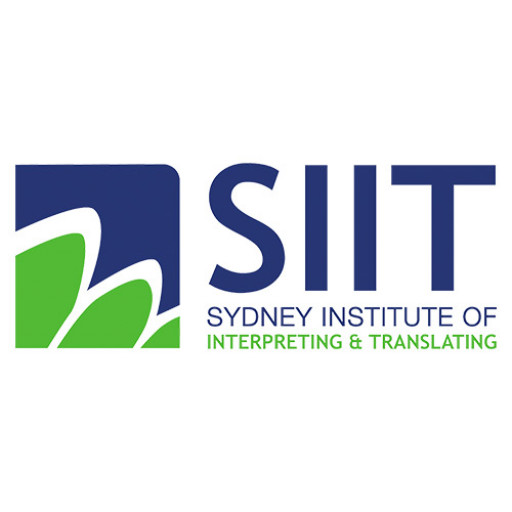The Bachelor of Arts (Interpreting and Translation) course is designed to present students with appropriate training and theoretical background to equip them to are professional interpreters or translators.
The Bachelor of Arts in Interpreting and Translation at Western Sydney University is designed to equip students with the comprehensive skills and knowledge necessary to excel in the dynamic fields of language interpretation and translation. This program offers a unique blend of theoretical insights and practical training, enabling graduates to meet the demands of diverse professional settings including government agencies, international organizations, private sector companies, and community services. Throughout the course, students develop proficiency in at least two languages, typically including English and a second language of their choice, such as Mandarin, Arabic, Spanish, or others offered by the university. The program emphasizes the importance of cultural competence, ethical considerations, and the development of effective communication skills across different contexts.
Students will engage with core linguistics, translation theory, and interpreting techniques, learning to accurately convey meaning, tone, and cultural nuances. The curriculum incorporates hands-on practice with real-world interpreting scenarios, including consecutive, simultaneous, and sight translation. Advanced modules focus on specialized fields such as legal, medical, technical, and business interpreting, preparing students for specific professional pathways. The program also fosters research skills and critical thinking, encouraging students to explore contemporary issues impacting language and communication in a globalized world.
Western Sydney University’s emphasis on experiential learning means that students have access to internships, industry placements, and networking opportunities with professional interpreters and translators. Through these practical experiences, students gain confidence and competence in their chosen career paths. Additionally, the program integrates the use of cutting-edge interpreting and translation technology, ensuring graduates are prepared for current and future industry standards. Graduates of the Bachelor of Arts in Interpreting and Translation are well-positioned to pursue careers as professional interpreters and translators, contribute to intercultural communication projects, or continue their studies in postgraduate programs. This program is ideal for bilingual individuals passionate about bridging language barriers and promoting cross-cultural understanding.
Admission requirements typically include completion of secondary education, demonstrated proficiency in English, and relevant prerequisites such as language proficiency tests or previous studies in related fields. Applicants must submit completed application forms along with official academic transcripts, evidence of English language proficiency (such as IELTS or TOEFL scores), and a personal statement outlining their interest in interpreting and translation. For domestic students, academic prerequisites may vary but generally involve completion of Year 12 or equivalent. International students are often required to meet specific English language requirements and provide verification of their academic credentials. The program may also require applicants to participate in an interview or provide a portfolio of relevant work or language experience. Once enrolled, students are expected to complete core courses in language skills, cultural studies, translation theories, and ethical considerations in interpreting and translation. Elective courses might include specialized translation techniques, interpreting for specific sectors such as legal or medical settings, and advanced language practice. Practical training through internships, placement opportunities, or simulated interpreting exercises is an essential component of the degree, providing students with real-world experience. Assessment is usually continuous, including coursework, projects, practical examinations, and a final capstone project. To graduate, students must achieve a minimum GPA specified by the program, complete all required units, and demonstrate competency in both interpreting and translation skills. The program also emphasizes professional conduct, confidentiality, and ongoing learning to adapt to evolving language use and industry standards. Overall, the degree prepares graduates for careers as professional interpreters and translators, equipped with bilingual proficiency, cultural competence, and specialized industry knowledge necessary for success in diverse sectors such as healthcare, legal, government, and private enterprise.
The Western Sydney University offers a range of financing options for students enrolled in their interpreting and translation programs. Students can access various scholarships, including merit-based and equity-based scholarships, designed to support their academic journey and reduce financial burdens. Additionally, government funding options such as FEE-HELP, an income-contingent loan scheme, are available for eligible students pursuing these programs at undergraduate and postgraduate levels. FEE-HELP allows students to defer part or all of their tuition fee payments until they are financially able to repay, which makes studying more accessible for a diverse range of students.
The university also provides payment plans that enable students to spread the cost of their tuition over manageable installments, thereby making higher education more affordable and flexible. International students enrolled in interpreting and translation courses are required to pay tuition fees upfront or as per their visa conditions, but they may also explore private scholarships and sponsorship opportunities to support their studies.
Western Sydney University maintains partnerships with various industry organizations and community groups, which sometimes offer targeted financial assistance or internship stipends that can be used to offset costs related to the program. Moreover, students are encouraged to explore external scholarships and bursaries offered by the Australian Government, private foundations, and professional associations related to language services and international communication.
Financial assistance programs often include comprehensive support services, including financial counseling, to help students plan and manage their educational expenses effectively. The university’s dedicated Student Hub provides detailed information and assistance, guiding students through application processes for different funding options. Furthermore, students enrolled in interpreting and translation degrees can benefit from part-time work opportunities on campus or within the local community, which can supplement their income while gaining practical experience relevant to their future careers.
In conclusion, Western Sydney University offers a variety of financing options tailored to support students in their interpreting and translation studies. These include government loans, scholarships, payment plans, and employment opportunities, all of which aim to make these programs accessible, affordable, and conducive to student success.
The Bachelor of Interpreting and Translation at Western Sydney University is a comprehensive undergraduate program designed to prepare students for professional careers in language services. This program emphasizes both theoretical and practical components, ensuring graduates are proficient in the necessary skills for effective communication across different languages and cultural contexts. The curriculum typically covers a range of subjects including language proficiency, translation theory, interpreting techniques, ethics in translation, and professional practice. Students have opportunities to develop their skills in various interpreting settings such as community, conference, and business contexts. The program is aimed at individuals who are bilingual or multilingual and are interested in pursuing careers as interpreters or translators in government agencies, healthcare, legal settings, or private companies. Alongside language skills, students also learn about the cultural nuances and contextual understanding required to deliver accurate and culturally sensitive interpreting and translation services. Western Sydney University often collaborates with industry partners to provide internship placements and practical training, giving students real-world experience and enhancing their employment prospects upon graduation. The program aims to equip students with the ethical, technical, and interpersonal skills necessary to thrive in a diverse and dynamic professional environment. Graduates may also have opportunities for further study in the field of translation and interpreting, or related areas such as linguistics, international relations, or multilingual communication. The program is delivered through a combination of lectures, workshops, interactive sessions, and practical assessments, ensuring a well-rounded education that aligns with the evolving needs of the industry.




